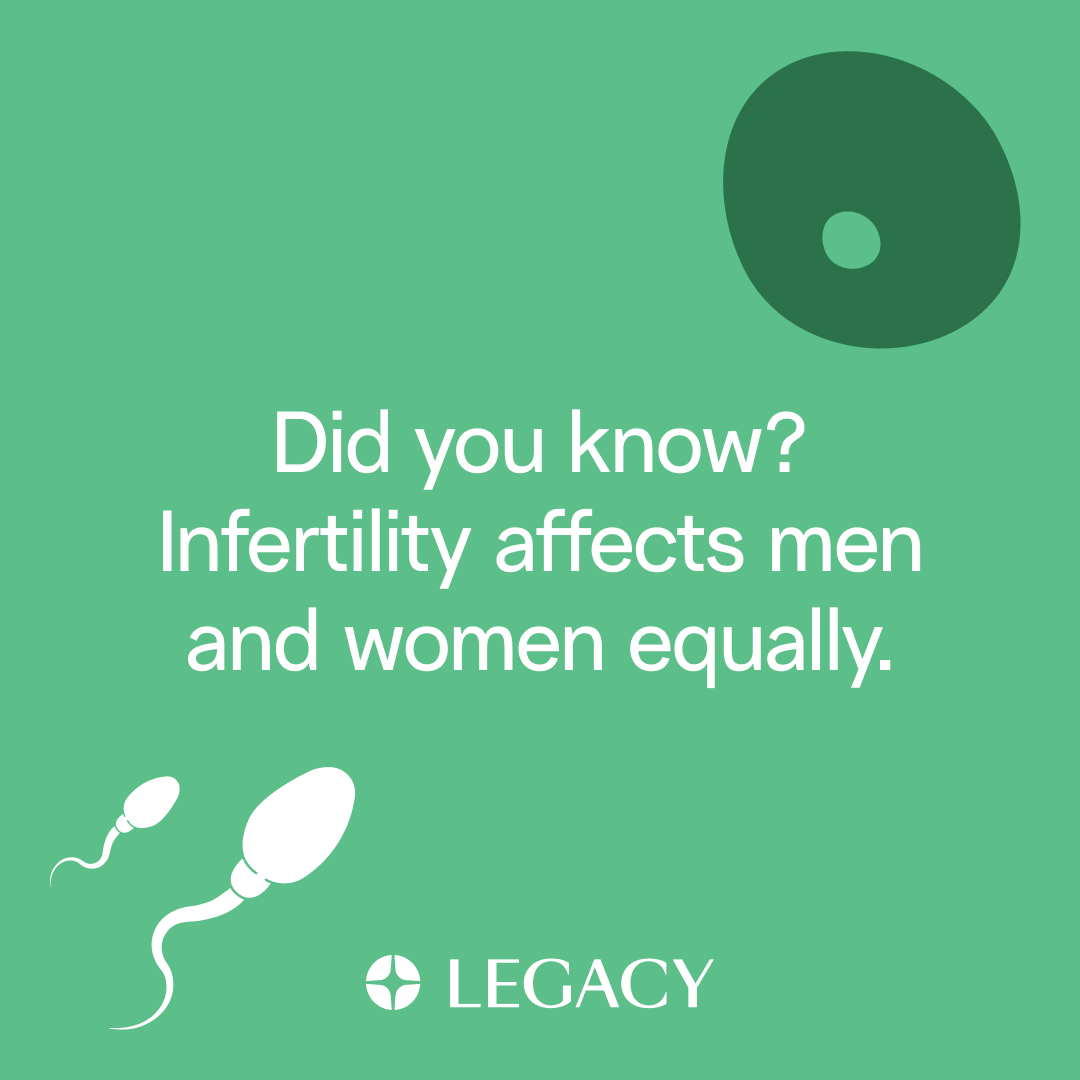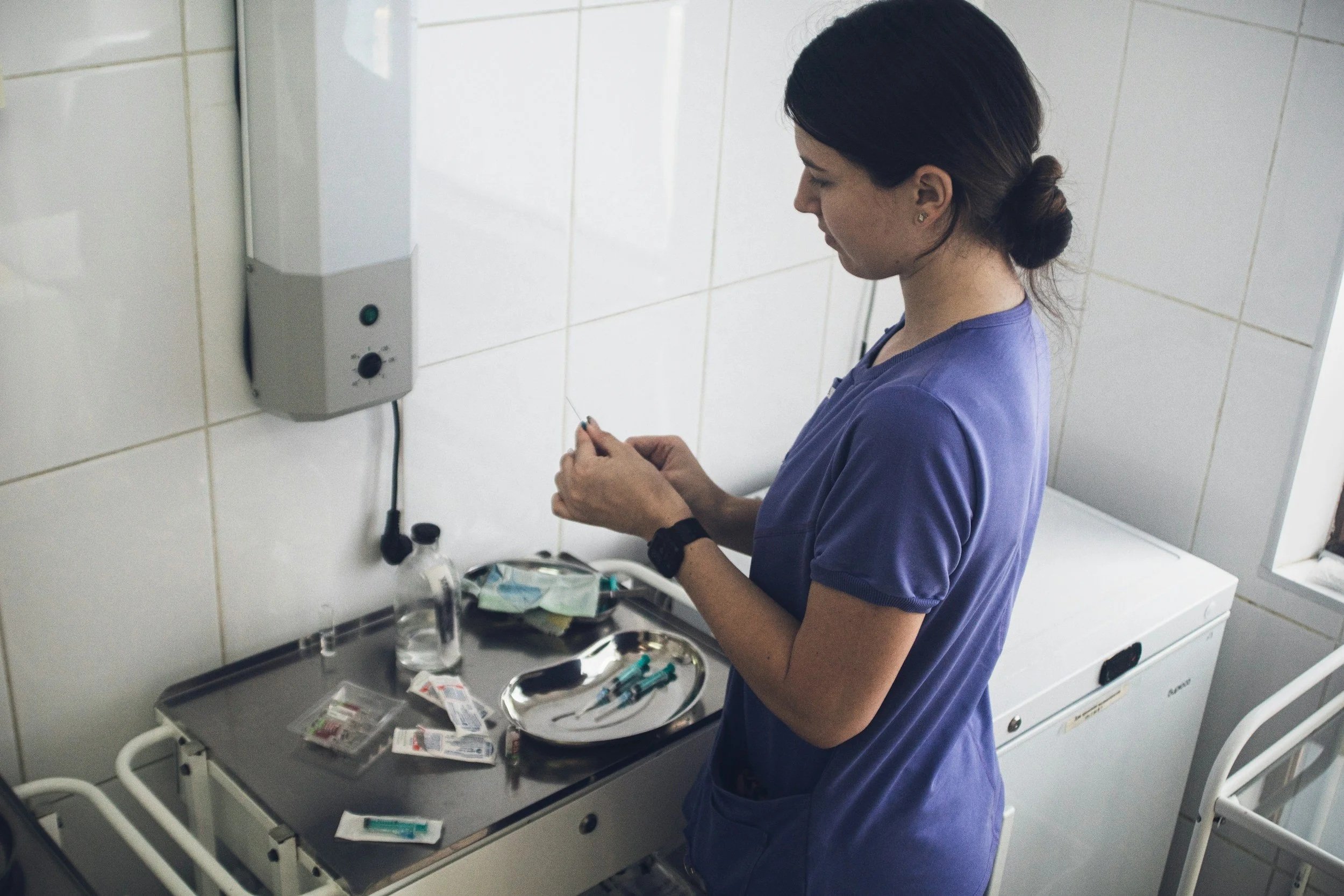If your male partner is considering fertility preservation, sperm freezing is a popular option. While the concept of sperm is similar to egg freezing in terms of freezing gametes, the process is different. Freezing sperm is much quicker and less costly than freezing eggs, and it is not as taxing on the body in terms of needing injection medications or undergoing a procedure for retrieval. This answer addresses what can impact sperm quality, fresh vs frozen sperm efficacy, and the similarities and differences between fertility preservation in men and women.
I'm freezing my eggs. Should my husband/fiancé/partner freeze his sperm now?
The short answer is yes! Just like eggs, sperm’s best day is today, and its quality will only decline with age. Freezing sperm is like taking out an insurance policy on your fertility — it ensures that whenever you’re ready to have kids, the highest quality sperm is available for use right away.
What can impact sperm quality?
Lifestyle factors play a big role in sperm quality. Alcohol use, heat exposure, even sleep patterns can affect sperm health. Learn more about lifestyle factors and sperm health.
In addition to everyday lifestyle factors, sperm quality is impacted by medical treatments like testosterone replacement therapy (TRT), hormone replacement therapy (HRT), and chemotherapy. Sperm health is impacted by age. Male fertility declines with each passing year, especially after 35. Around age 40, the risk of having a child with birth defects increases dramatically. Paternal age can also affect your chances of miscarriage, preterm birth, and other pregnancy complications. Read more about sperm quality and age.
How are egg freezing and sperm freezing similar? How do they differ?

SAVE 15% with code FREEZEHEALTH on all Legacy products
Unlike egg freezing, sperm freezing is a completely non-invasive process. It only requires a semen sample, typically produced via masturbation, to be deposited at a lab or through a mail-in service like Legacy. From there, the lab uses liquid nitrogen to freeze the sample at -196ºC, and it’s stored in a cryogenic lab until a withdrawal is requested. Sperm freezing does not require months of medications to prepare the body before collection. Prior ultrasound and labs are also not necessary, given that sperm analysis is done after the sample is collected.
If I use my frozen eggs for IVF, is there a difference between frozen and fresh sperm?
Research has found the chances of pregnancy with IVF are no less with frozen-thawed semen than with fresh. Another study demonstrated that pregnancy rates are equivalent when using frozen sperm in IVF with ICSI, compared to fresh.

Stephanie Sabourin is a nurse from Legacy with a decade of experience as a specialist in men’s health and male infertility and is certified in andrology. She previously worked at Brigham and Women’s Hospital in Boston, where she was instrumental in building the men’s health department. She is a member of ASRM and WPATH.
Answered by Dr. Roy Handelsman from HRC Fertility. Understand how ovarian cysts and ovarian surgery may impact the egg freezing process.
Answered by Dr. Rashmi Kudesia from CCRM Fertility Houston. Here’s a checklist for before, during, and after your egg freezing consultation, including 11 questions you should ask the doctor.
Answered by Valerie Shafran, MSN, FNP-C from Extend Fertility. Discover why fertility experts urge women to stop taking GLP-1 agonists before an egg freezing cycle.
Answered by Dr. Nidhee Sachdev from South Coast Fertility Specialists. Explore what AMH tells us about a woman’s ovarian reserve or how many eggs she has left.
Answered by Dr. Hade from Generation Next Fertility. Understand how egg freezing does not cause long-term weight gain yet there is a chance of transient bloating.
Answered by Rijon Charne, JD from Sunray Fertility. Explore what a reproductive estate plan entails and the situations where having one can make a big difference.
Answered by Rijon Charne, JD from Sunray Fertility. Learn more about the importance of clinic disposition forms, including what they do and don’t cover.
Answered by Rijon Charne, JD from Sunray Fertility. Discover the legal nuances that can shape your options when freezing eggs or embryos.
Answered by Dr. Joshua Klein from Extend Fertility. Learn how birth control relates to egg freezing and if you will need to stop your hormonal birth control before starting the procedure.
Answered by Dr. Jesse Hade from Generation Next Fertility. Discover the important factors that affect chances of egg freezing success in your late thirties.
Answered by Sidonia Buchtova, PA-C, C-RHI from Refresh Psychiatry. Understand if you can stay on an SSRI or SNRI when freezing your eggs.
Answered by Sidonia Buchtova, PA-C, C-RHI from Refresh Psychiatry. Discover tips to help support your mental well-being during preparation, throughout the cycle, and after your egg retrieval, especially if you have a history of anxiety.
Answered by Dr. Katharina Spies from Vida Fertility. Learn about who should consider supplements before and during fertility preservation, and how supplements could support your egg freezing cycle.
Answered by Dr. Serin Seckin from Generation Next Fertility. Understand the key differences to help you make an informed decision that aligns with your personal and reproductive goals.
Answered by Dr. Ido Feferkorn from the Reproductive Medicine Group. Learn how Polycystic Ovarian Syndrome (PCOS) may affect the egg freezing process and outcomes of fertility preservation.
Answered by Dr. Meera Shah from Nova IVF. Understand the potential risks of egg freezing to help you evaluate if it is right for you.
Answered by Dr. Hade from Generation Next Fertility. Learn from start to finish the entire process of what happens on the final day of an egg freezing cycle.
Answered by Dr. Sahar M. Stephens from Northern California Fertility Medical Center. Understand the probability of pregnancy based on the number of eggs frozen and the age at which you freeze.
Answered by Dr. Alison Peck from HRC Fertility. Discover which medications are commonly used for ovarian stimulation during an egg freezing cycle.
Answered by Dr. Kathryn Snow from Piedmont Reproductive Endocrinology Group (PREG). Understand the side effects that you may experience when freezing your eggs.
Answered by Lia Schiller, MSN, AGNP-BC from Extend Fertility. Learn why IUDs can stay in place throughout the egg freezing process.
Answered by Dr. Woo from HRC Fertility. Learn how some medications need to be stopped for an egg freezing cycle while some medications can be continued.
Answered by Dr. Dan Nayot from The Fertility Partners. Learn how artificial intelligence is providing women with more information than ever before about their eggs.
Answered by Dr. Joshua Klein from Extend Fertility. Egg freezing doesn’t impact your chance of getting pregnant naturally, because egg freezing makes use of eggs that would otherwise have been lost.
Answered by Dr. Dan Nayot from The Fertility Partners. Understand the distinction between egg quantity and quality, and explore how AI is transforming egg quality analysis.
Answered by Dr. David E. Tourgeman from HRC Fertility. Understand what options exist for what to do with your frozen eggs if you decide not to use them for IVF.
Answered by Dr. Armando Hernandez-Rey from Conceptions Florida. Learn about minimal stimulation egg freezing cycles and how they can decrease the risk of ovarian hyperstimulation syndrome.
Answered by Dr. Ido Feferkorn from the Reproductive Medicine Group. Find out how egg freezing medications work and how protocols can be adjusted if you can’t take estrogen.
Answered by Dr. Ido Feferkorn from Reproductive Medicine Group. Learn how egg freezing fits into the menstrual cycle and how timing can be customized.
Answered by Dr. Elena Santiago from Vida Fertility. Understand the ins and outs of egg freezing in Spain as a non-resident, including timing, costs, and more.































